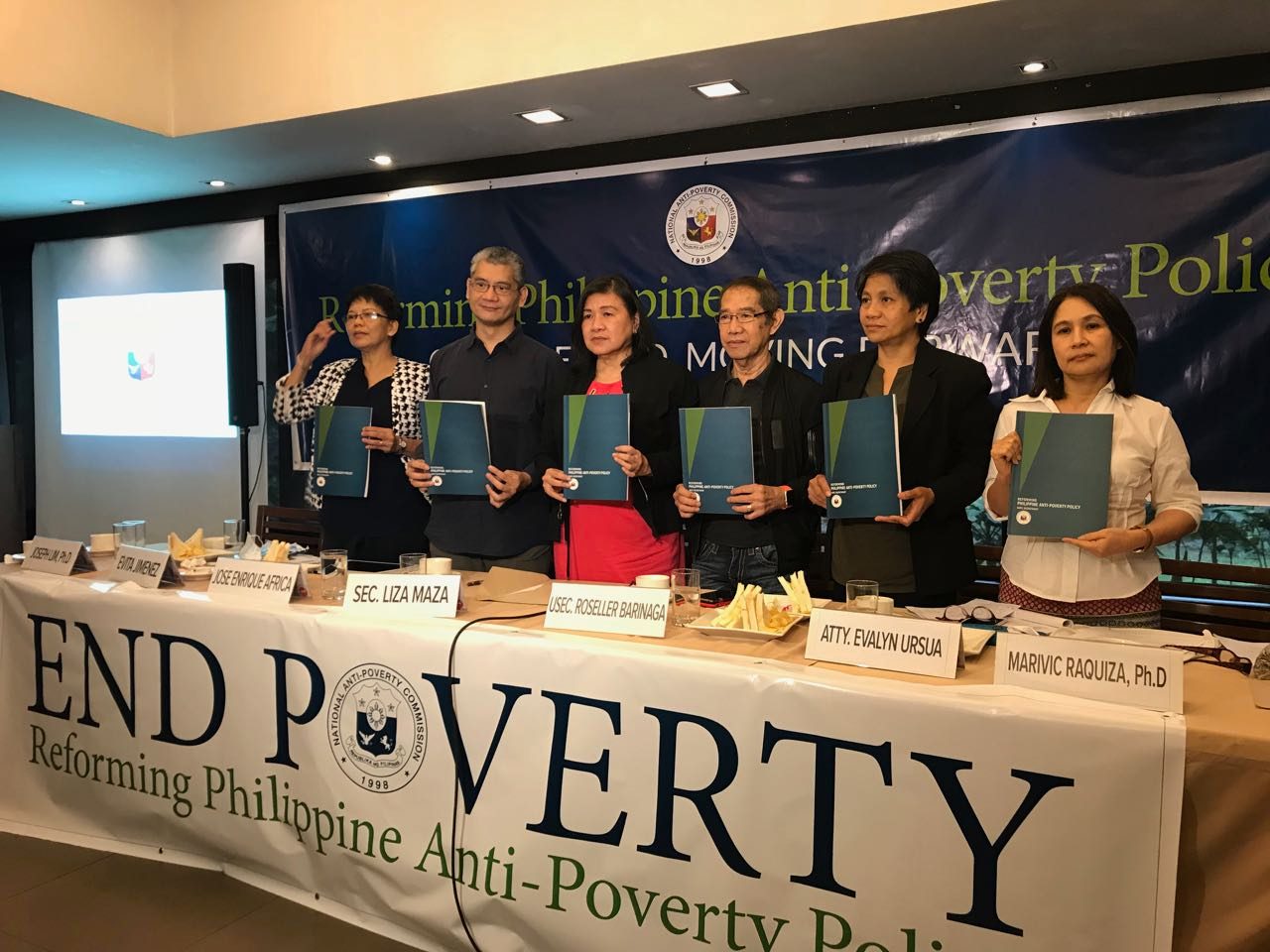SUMMARY
This is AI generated summarization, which may have errors. For context, always refer to the full article.

MANILA, Philippines – The National Anti-Poverty Commission (NAPC) said that a shift to a federal government alone would not be enough to yank millions of Filipinos out of poverty.
NAPC Lead Convenor Liza Maza made the statement as lawmakers prepare for discussions on Charter Change (Cha-Cha), which include the proposed shift to a federal system of government, one of the campaign promises of President Rodrigo Duterte.
“Federalism or change in the government, it will not address the issue of poverty if we don’t take the needed solutions,” Maza said as her office launched its proposed reforms to fix the country’s anti-poverty policies.
The former Gabriela representative said “if we will not fix our policies and the mechanisms of addressing the issue of poverty, it will remain to be a big problem.”
Based on the latest Social Weather Survey (SWS) figures, around 10.9 million families consider themselves poor.
Federalism will divide the country into autonomous government units that will take care of their own local concerns such as the development of industries, education, healthcare, finances, and laws.
It is seen as a solution to regional underdevelopment as each unit will have more power over their resources. Under a federal government, they will be required to turn over only a portion of their income to the national government (READ: Will federalism address PH woes? Pros and cons of making the shift)
The Senate will resume discussions on Cha-Cha on January 17.
NAPC launched its reform agenda on Thursday, January 11, comprised of consolidated inputs from year-long consultations with basic sectors, as well as previous studies and policy proposals.
The reform agenda document, “Reforming Philippine Anti-Poverty Policy,” presents a rights-based approach in eliminating poverty. Maza said the document was submitted to President Rodrigo Duterte on December 8, 2017.
“I think the President will benefit a lot from this book because he will see a new approach presented by NAPC as consulted with the basic sectors,” said Maza.
According to the NAPC document, anti-poverty programs since the Marcos era have failed because they dealt with the effects, not the cause, of poverty. NAPC observed that current initiatives are “disconnected from macroeconomic policymaking” and are “narrowly focused.”
NAPC proposed to place poverty eradication at the center of foreign and fiscal policies through the following:
- Rights-based social development by promoting a multi-dimensional view of poverty
- Agrarian reform and national industrialization through phased development of local industries and increased share of local agriculture in the economy
- Reduced reliance on market forces through a review of existing economic agreements with other countries and regulation of foreign investments
- Universal social protection by placing basic social security guarantees in health education, unemployment, disability and pension
- People’s participation in governance through reforms in the political party system and the elections, and promoting consensus in governance
The reform agenda document was prepared by development experts such as Sonny Africa of IBON Foundation, Marivic Raquiza of Social Watch Philippines, Evita Jimenez of the Center for People Empowerment in Governance, and UN Women consultant Evalyn Ursua.
Most of the measures are already included in the National Economic and Development Authority’s (NEDA) Philippine Development Plan for 2017-2022.
Observers have said that the proposal on regulating foreign economic intervention may not sit well with Duterte’s economic managers.
With this in mind, Maza said NAPC will meet with Budget Secretary Benjamin Diokno, NEDA chief Ernesto Pernia, and Finance Secretary Carlos Dominguez III on the proposal. – Rappler.com
Add a comment
How does this make you feel?
There are no comments yet. Add your comment to start the conversation.